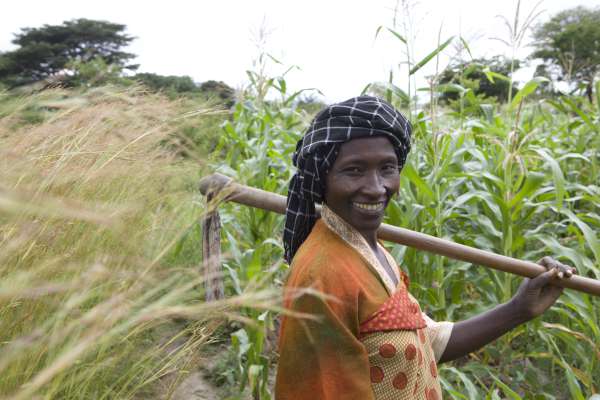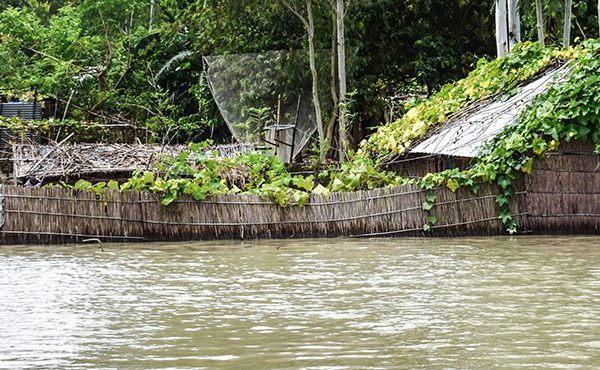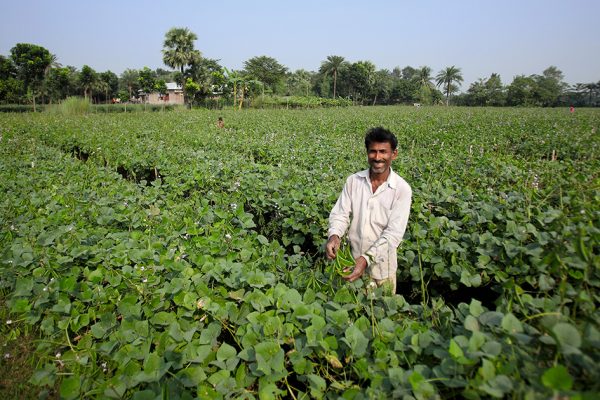Tilling the Tanzanian soil for development
Reading Time: 2 minutes
How can we quickly boost farmer incomes so they have a chance to lift theLike 80 percent of Tanzanians, she earns a living from agriculture. The smile on Khabitu’s face suggests she’s doing well. She works as a model farmer, demonstrating good techniques to her neighbors at her small vegetable farm, which she tends with her husband Said, in Iringu, central Tanzania.mselves out of poverty?
The woman here is named Khabitu Ally Mkude. Her picture greets us when we arrive at the BRAC USA office every morning.
Like 80 percent of Tanzanians, she earns a living from agriculture. The smile on Khabitu’s face suggests she’s doing well. She works as a model farmer, demonstrating good techniques to her neighbors at her small vegetable farm, which she tends with her husband Said, in Iringu, central Tanzania.
But most aren’t so prosperous. The living a Tanzanian farmer makes is often a meager one. Women farmers in particular are vulnerable to crop failures and other shocks.
How can we quickly boost farmer incomes so they have a chance to lift themselves out of poverty? How can we quickly catalyze change?
We can start with three things:
- Farmer training. Khabitu’s success is the result of her own hard work, but she didn’t come across her skills accidentally. In exchange for sharing the knowledge with her neighbors, she received training from BRAC – which includes things like how far apart to space the rows of vegetable, how often to till, and how to spot diseased plants.
- Input provision. BRAC has become especially good at getting inputs – seeds, fertilizers and other things necessary to run a good farm – to women like Khabitu. We do through a micro-franchised distribution system, offering people a “business in a box” that allows them to make money selling affordable goods to their neighbors.
- Building market infrastructure. It’s one thing to know how to farm. Khabitu also needs functioning markets to sell her goods – buyers, distributors, and processors. In Bangladesh, BRAC built a an entire dairy industry by linking all the points in the value chain, from the woman who bought a cow with a micro-loan, to the person collecting the milk on a rickshaw, to the cooling stations and the packing plants.
That is what BRAC is doing now in Tanzania, in partnership with others.
BRAC recently announced a new agricultural development program for Tanzania in partnership with the UK’s Department for International Development, building on a successful pilot phase funded by the Bill & Melinda Gates Foundation. Under this program, known as Livelihood Enhancement through Agricultural Development (LEAD), DFID will provide more than $13 million over four years to raise the incomes of smallholder maize and poultry farmers, 65 percent of whom are expected to be women, in more than half the regions of Tanzania. The program is expected to boost farmer production on the order of 50 percent in maize, vegetable, chicken and eggs.
Meanwhile, we’ll help develop private sector entities to create the infrastructure that will lead to sustainable growth, allowing farmers like Khabitu to thrive. Under this program, 100,000 households will probably see their income double.
How can readers play a role in the green revolution for Africa? By supporting microfinance projects in Tanzania, so women like Khabitu can take the next step and seize control of their lives.
We know from Bangladesh and elsewhere what it takes to make huge leaps in agricultural productivity. In 1974 a famine devastated the country; since then, Bangladesh has tripled its annual rice production, largely through food production programs like LEAD, focused on expanding opportunities for smallholder farmers. The task now is to bring that same level of progress to Tanzania.






